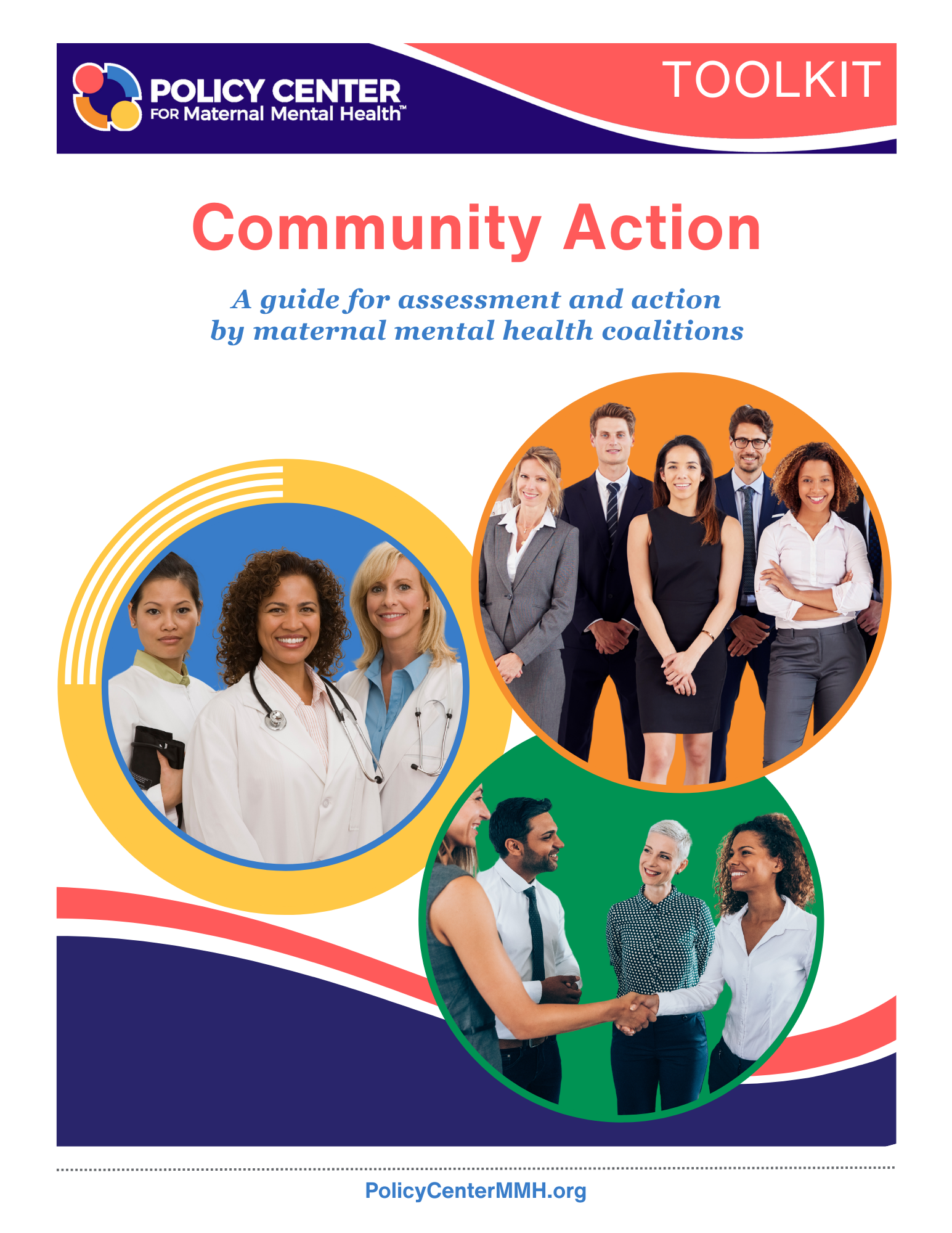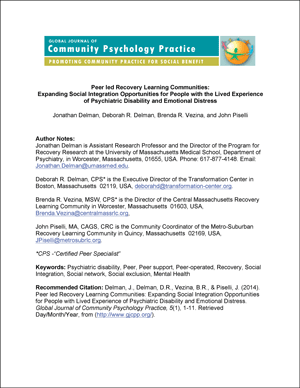Resources for Communities
Community ACTION for Maternal Mental Health
Community Leaders Are Ready to Lead Change
To mobilize local communities for improved maternal mental health, the Policy Center for Maternal Mental Health (formerly 2020 Mom) launched the Community ACTION For Moms Mental Health Project (the "ACTION" project).
Review the Community ACTION Toolkit
U.S. community-based nonprofit organizations providing maternal mental health care services are invited to join the Maternal Mental Health Nonprofit Nation listserv to connect, ask questions about any issue (from service delivery to nonprofit governance) learn about federal funding or other funding opportunities, and more. Joining the listserve also places your nonprofit on the Community Based Organization map. Learn more.
Peer led Recovery Learning Communities: Expanding Social Integration Opportunities for People with the Lived Experience of Psychiatric Disability and Emotional Distress
Case Study: The Role of Community Health Workers in Addressing Inequities
This white paper outlines best practices and solutions for health departments and health systems to engage community health workers to address equity gaps.
UK Resource: Perinatal Workforce Competency Framework
This framework identifies the skills required and helps care teams to assess their training needs.
The tool allows professionals to access the competencies in the framework relevant to their role and inform them of which competencies they require in order to fulfill the responsibilities of their role.
Mental Health Resources for The Black, Indiginous and other People of Color (BIPOC) Community
Black Emotional and Mental Health Collective (BEAM)
The Loveland Foundation, providing funding for Black women and girls seeking therapy
Asian American Psychological Association (AAPA)
Asian American Health Initiative
WeRNative, a health resource for Native youth, by Native youth
Domestic Violence Prevention
Domestic/intimate partner violence (IPV) is a pervasive problem in virtually all countries, cultures, classes and income groups. According to the National Resource Center on Domestic Violence, women who have experienced IPV are twice as likely to experience depression, almost twice as likely to abuse alcohol, and 16 percent more likely to have a low-birthweight baby.





